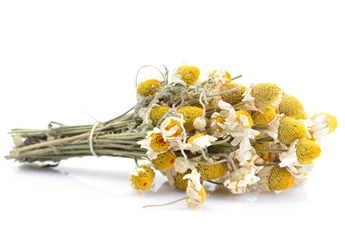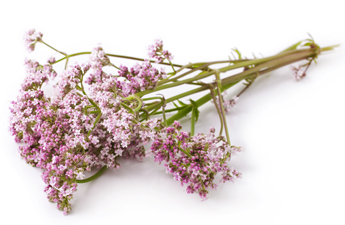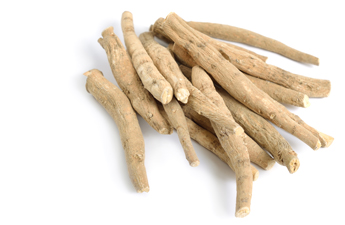The other day we came across this quote:
“Nature does not hurry, yet everything is accomplished.” – Lao Tzu
It reminded us that in these changing and uncertain times, the practices of mindfulness, surrender, patience and gratitude can be powerful medicine — both preventative and healing. Nature can teach us a lot about these practices, through observation and interaction.
So, how can we foster a greater sense of peace and acceptance internally, even when the external world radiates fear, grief and chaos?
It starts with something you actually have control of…your breath!
To ease the process of adapting to change, try to make meditation a priority in your day. Ideally once in the morning and once in the evening before bed, but even just five minutes anywhere it flows can make a difference in how you go about the day. Observe how your body feels, observe your breath, your feelings and your thoughts. By gaining control over your thoughts and emotional reactions, you gain more control over your life, no matter what craziness is going on outside of your control.
However, slipping into this state of presence and observation can be difficult, especially when your stress levels are high (which is when you need it the most!). So we have a few different favourite herbs that can aid in shifting perspective from a place of stress, towards a state of peace and bliss. Stephanie dives deeper into nerve herbs for stress and fatigue, but we’ve covered a few of our go-to ones below:
Herbs to Help You Shift Your Focus to the Now
Damiana: If you’ve been part of the Happy Herb Co family for some time, you already know about our passion for this beautiful herb. Damiana produces a mild uplift and sense of euphoria, but not in an overly stimulating way. It can even heighten colour appreciation and 3-D effects in your vision!
Skullcap: In Chinese medicine, Skullcap is considered excellent for cooling the mind, liver and lungs. For this reason it promotes a state of meditation and calms an overactive mind.
Gotu Kola: An excellent herb valued in Ayurveda for promoting calmness, focus, memory and revitalising nerve and brain cells. Overall rich in tonic properties and its ability to sharpen mental acuity.
Tulsi: Beyond stress relief, tulsi is a powerful tonic herb that boosts wellness and vitality in many areas. This Ayurvedic herb stimulates the mind and improves concentration by increasing the availability of glucose in the brain, having a significant effect on mental fatigue. It strengthens and calms the nerves, and improves the stress response. Unlike most other mental stimulants, tulsi is calming, reducing stress, tension and anxiety. It strengthens the nervous system, helping us to recover from long-term stress, trauma, and exhaustion. Tulsi is also an adaptogenic herb which brings us to our next bit of advice for less stress.
Blue Lily: The beautiful blue flowers of this much revered lotus were smoked and ingested by the ancient Egyptians, producing a subtle, calming and etheric effect. Blue Lotus, otherwise known as sacred lily of the Nile, is a delicious relaxing smoke. Cleopatra was particularly enamored with this herb and it was even represented in early Egyptian art. It creates a dream-like state and provides for a deep sleep afterwards.
Adaptogens & Adrenals: Restoring the Sympathetic Nervous System
Many of us are constantly running in a ‘tired and wired’ state, also known as adrenal burnout. This is a result of the fast-paced society we live in (too much work, too much caffeine, etc.), and it can have detrimental effects on our body’s response to stress. Now is a great time to take advantage of an enforced slower pace, and restore your adrenals to their normal state. Herbalist Stephanie Hazel dives deeper into adrenal burnout and its impact on the body in her blog, Herbs & Lifestyle Tips to Prevent and Recover from Adrenal Exhaustion, which is a great supplemental read to this blog series.
In addition to adjusting lifestyle factors, such as limiting caffeine intake and getting consistent sleep, we can also use herbal helpers to bring our body into a balanced state so we can respond to stress effectively. Herbs following in the adaptogen category are essential here:
- Siberian Ginseng: An adaptogen that directly supports adrenal function, improves the response to stress, and boosts immunity.
- Licorice root: The most highly recommended herb for the adrenal cortex (what produces the stress hormone cortisol) by David Hoffman, England’s premier herbalist.
- Rhodiola: Another herb with adaptogenic qualities, Rhodiola can be especially helpful when trying to do mentally intensive activities without caffeine!
- Maca: Increasing sexual and athletic stamina, this revered adaptogen and aphrodisiac from Peru is known as as a “superfood”, providing sustained physical energy.
- Ashwagandha: Aryuvedic all-round strengthening tonic. Ashwagandha is particularly high in iron. It is used in Ayurvedic medicine as a tonic for tired or overworked bodies. This adaptogenic herb is particularly effective at managing anxiety and the body’s emotional/mental response to stress.
Individualized Healing
But remember, health is best understood from an individual perspective, so the best stress-relieving herbs for you may vary. Addressing where the root of your stress comes from is a good starting point to determine which herbs will be of most aid; for example, if your stress comes from overwork then adaptogens would be of aid. If your stress comes from fear of the future, the meditation herbs we’ve mentioned might be more beneficial. The good news is, all of these herbs are relatively gentle so you can experiment. But of course, check with your doctor first if you are on any other medication!


 Nextwave
Nextwave

